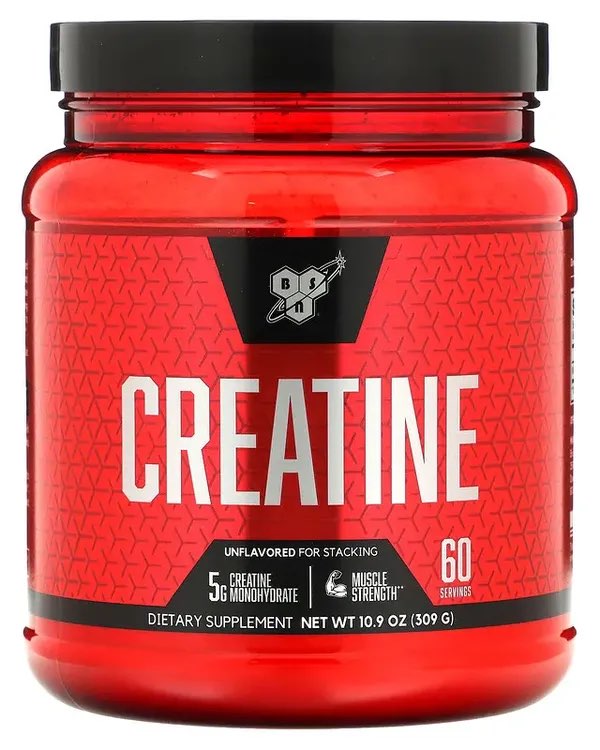Can creatine treat its own insomnia side effect?
Creatine is an effective ergogenic aid, an actual performance booster. It is capable of reducing muscle fatigue. And anything that improves performance can also be great for pain and injury rehab, which is why I’m writing about it here.
Unfortunately, when I tried the stuff, I quickly discovered an infamous side effect I hadn’t heard of: my chronically poor sleep got even worse! Which is bad for pain and injury rehab. So I can now add to the anecdotal evidence that creatine can make sleep as thin and unsatisfying as skim milk. (Obviously it doesn’t affect everyone this way. Biology is messy, people are different.)

Creatine monohydrate is notorious for causing shallow sleep.
But here’s an unexpected twist in the creatine plot …
Some people claim creatine improves mental alertness despite the fact that it messes with sleep. Could creatine take the benefits of sleep from us at night, and then give them back during the day? Such a thing could be true, but it is a significant claim. Just helping with the effects of sleep deprivation would be a big deal in itself, but mitigating it as well as causing it? A drug that treats its own side effects?!
I have doubts. The evidence bar has to be set high for us to swallow that hypothesis with our creatine … and I don’t think the science we have comes anywhere close to clearing it.
ResilientNutrition.com takes a stab at this. Their 2021 article cites Kreider et al. — a general review of creatine that barely mentions this topic. 🙄 Just one sentence, with one relevant citation to McMorris, a very small 2007 study of just one facet of this complex question … with a mostly negative result. So this is a classic example of a bogus citation. “I do not think that citation means what you think it means.”
To be fair, RN’s article does go on to cite a couple more studies — but both small ones from the same small research group. Their data is worth considering, but it’s not much to go on.
The claim is an educated guess at best. Meanwhile, we do know for sure that sleep deprivation is serious stuff. How many systems are impacted by it? Probably all of them! Even if creatine absorbs some of that impact, what are the odds that it can protect us from all of it?
It’s probably unwise to take a supplement with a known harm because it might compensate for it partially.
But! I would be willing to consider taking it if I’ve already slept badly for other reasons. Some 2024 evidence does support that strategy: “a high single dose of creatine can partially reverse metabolic alterations and fatigue-related cognitive deterioration” (Gordji-Nejad).
Have you experienced creatine-wrecked nights? Have you felt fine or better during the day despite that? Let’s hear your anecdotes! I think they’re all we’re going to have for a long time.
This post is an excerpted update to my insomnia guide.